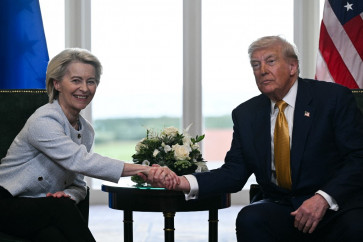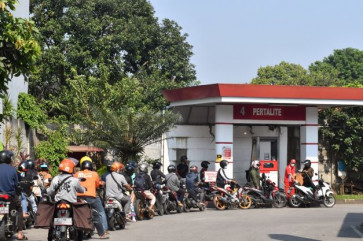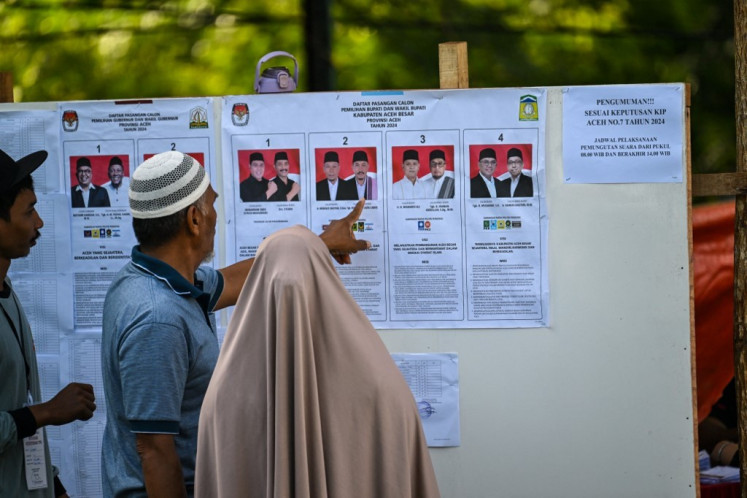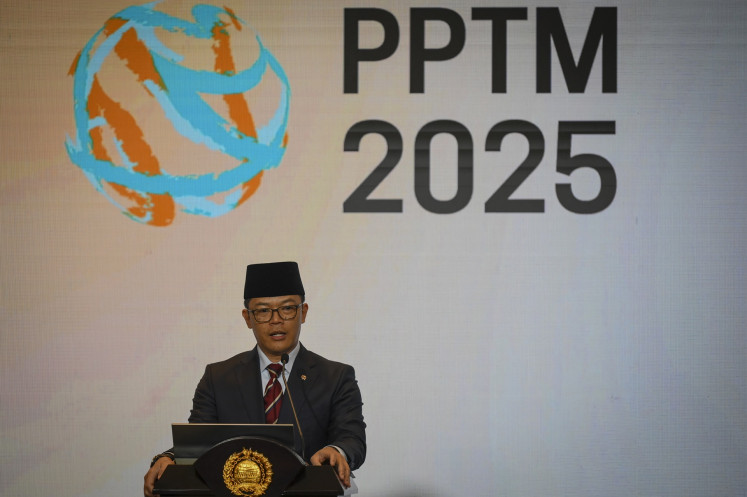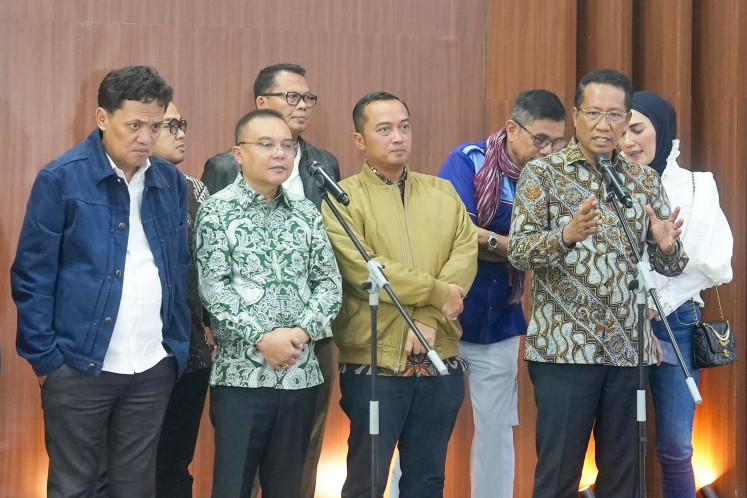Popular Reads
Top Results
Can't find what you're looking for?
View all search resultsPopular Reads
Top Results
Can't find what you're looking for?
View all search resultsAnticorruption activists vs corrupt actors
Recent developments in the case of former Democratic Party treasurer Muhammad Nazaruddin have caused deep unease among people
Change text size
Gift Premium Articles
to Anyone
R
ecent developments in the case of former Democratic Party treasurer Muhammad Nazaruddin have caused deep unease among people. Many believe that this case is not the end of the story as it will lead to many more graft cases.
There is a certain amount of relief since it will lift the lid on other big scandals, but it is also causing concern that people heretofore regarded as beyond suspicion will be exposed as being corrupt.
The latest survey by the Good Governance Monitor in June 2011 for the quarter ending June 30, 2011 revealed staggering results: “More than ever before, more Indonesians from across the country believe corruption is one of the major problems facing this country. The worry affected 91 percent of the population, up by three points from the previous quarter,” read The Jakarta Post (Aug. 16, 2011).
Public revulsion about corruption is good since corruption goes against all norms. Corruption impedes development due to its dysfunctional effects on political systems and institutions, as government employees and political officials seek illegitimate personal gain through bribery, extortion, cronyism, nepotism, patronage and embezzlement.
We are actually in the middle of a long and tiring war. Which side will win? Will it be the anticorruption activists or the corrupt actors? Political and economic logic can provide an academic answer.
To use this logic, we will examine the juggernaut framework which was first introduced by Baldwin (2006). Although it is best known in the field of international economics, it also serves well when it comes to politics.
The main similarity would be the involvement of actors who seek to find a politically optimal point (equilibrium point). Those actors are; i) policy makers, ii) the corrupt actors themselves and iii) anticorruption activists.
Let us move on to the scenario where corrupt actors have a dominant lobbying power that influences the whole system. In this scenario, the corrupt actors will try their best to ensure their activities remain secure. To do so, the corrupt actors need to lobby policy makers to relax rules against corruption by giving the policy makers bigger bribes in return. More lax sanctions also lead to an increase in corruption.
Naturally, the anticorruption activists would resist such lenient sanctions. For the corrupt actors, the important factor is the cost of lobbying. Since the first scenario assumes the corrupt actors have an ample amount of resources to handle these costs, the policy makers will then be encouraged to ease sanctions.
The number of corrupt actors is determined by the free entry condition, which is a function of the sanctions. Lesser sanctions will lead to increasing numbers of corrupt actors as they face lower barriers to entry. The sanction itself is determined by the policy makers’ actions when it maximizes a “politically realistic objective function”. The objective function here is defined as a way to maximize one’s preference.
The intersection of politically realistic objective functions with the free entry conditions gives us combinations where the policy makers are choosing the politically optimal rule while letting the corrupt actors enter the game to the point of no return.
Reciprocal talks (taking the form of negotiation between corrupt actors and policy makers) will have a direct impact on a politically maximum sanction. This scenario will shift down the objective function of the policy makers since they have a new set of optimal rules.
The shifting will in turn lead some anticorruption activists to be marginalized since they face increasing number of corrupt actors which also means increasing lobbying power against them. This situation will decrease the cost of lobbying since the political resistance from the import competing sectors is decreasing linearly with the growing number of corrupt actors.
As far as Baldwin’s juggernaut effect is concerned, the political economy forces driving the effect are strengthened by the tendency of special interest groups to fight harder to secure gains. For them, joining the corruption game will provide new commercial opportunities. Having said this, more relaxed sanctions may play a particularly important role in generating new, pro-corruption political economic activity. Having further reciprocal talks is cheaper now resulting in sanctions being eased even more. The cycle repeats itself until a new equilibrium is met (the juggernaut effect).
This grim picture is not entirely true since it only serves academically to describe ex ante winners. Yes, we may see that it is only natural for corrupt actors to have a bigger influence than the anticorruption activists when we talk about the system. This is clearly reflected by the Asia Pacific region’s indicators of corruption control for Indonesia which have been at rock bottom since 1998.
But we still have high hopes for the Corruption Eradication Commission (KPK) as an independent body that could function as an arbitrator and transform the politically realistic objective function into a politically unprejudiced objective function. People will cross their fingers as they watch the selection process of KPK officials. Together with credible policy makers, everything is possible.
Taking the words of Franz Magnis-Suseno, “This country needs to make more of an effort than it has made in the fight against corruption,” (Kompas, Aug. 16, 2011) let us hope so!
The writer is a PhD candidate at Graduate School of Asia Pacific Studies, Waseda University Tokyo, and lecturer at the School of Economics, University of Indonesia, Depok.



